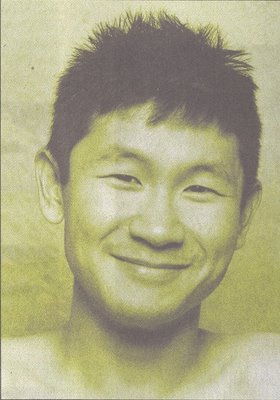Will be speaking at Silverfish Books in Kuala Lumpur this evening, 5:30pm, to promote my translation of "The New Village"! Three books to be promoted, in fact:
Admission is free. All welcome, but seats are limited.
- Robert Yeo’s ROUTES. Robert Yeo, a.k.a Yeo Cheng Chuan, (b.1940, Singapore -), is a poet and playwright, novelist and newspaper columnist on the arts, literary and theatre essayist advocating the establishment of a distinctly Singaporean tradition in writing. He was for many years a lecturer in the National Institute of Education, Nanyang Technological University and was a proponent for the greater inclusion of the study of Singaporean texts in the school curriculum. Poet and critic Aaron Lee has described Yeo as being “the most Singaporean of Singaporean writers”.
- Dr Wong Yoon Wah’s THE NEW VILLAGE. Wong Yoon Wah (b. 13 August 1941, Perak, Malaysia - ) is one of the few Singaporeans who excel as an international poet, critic and scholar. Prolific in both creative and academic writing, he has published over twenty collections of prose, poetry, and academic writings on Chinese and comparative literature in Chinese or English. For his commitment to promoting literature regionally, he has been awarded the Southeast Asia Write Award (1984), the Cultural Medallion (1986), and the ASEAN Cultural Award (1993).
- Wong Phui Nam’s THE HIDDEN PAPYRUS OF HEN_TAUI. Wong Phui Nam's poems are regarded as among the best Malaysian ones in English, unsurpassed in their eloquence and linguistic richness. Most of them are contemplative and draw their images from the local landscape. Wong Phui Nam's poetry explores the experience of living in multi-cultural Malaysia. "Before the British set up this country, Malaysia was a totally agrarian society," he says. "Suddenly we get this commercialism and development of plantations to supply a metropolitan power. Even for a writer in Malay, whether he is a Malay or a non-Malay, he has to reinvent the language. All the more so for Indians and Chinese. For a Chinese, when we write in Chinese, we cannot pretend that nothing has happened and try to write Tang poetry. So for us to write in English, we are exiled three times, culturally and spiritually from China, culturally from the indigenous Malay culture, and then writing in English. We cannot claim that it is a tradition. I would say we have appropriated the language. So, in a way, it is a much more interesting medium to work with, to work with the language against the tradition."
Professor Mohammad Quayum, of the International Islamic University of Malaysia, will moderate the event, which will include discussions with regards to the development of Malaysia/Singapore writings in English.
Venue: Silverfish Books,
28-1 Jalan Telawi, Bangsar Baru,
59100 Kuala Lumpur.
Date: Saturday, 22 September 2012
Time: 5.30 pm

